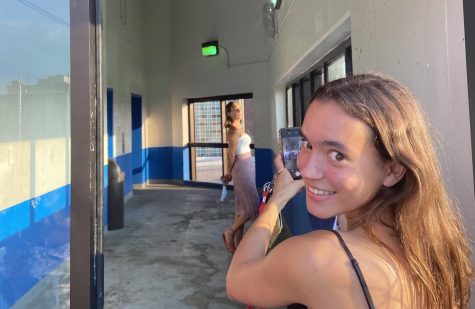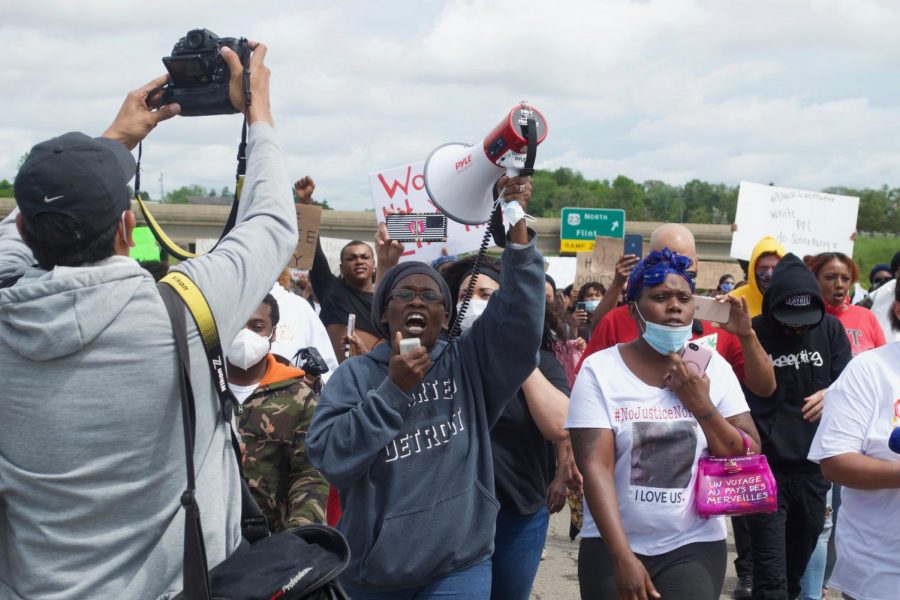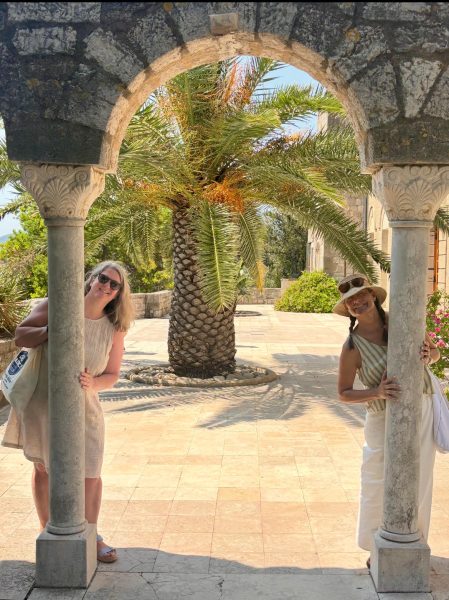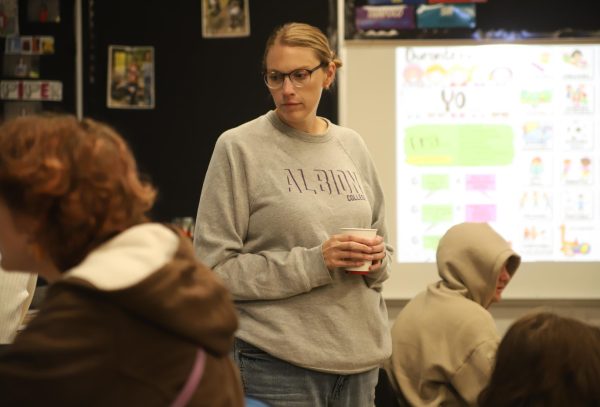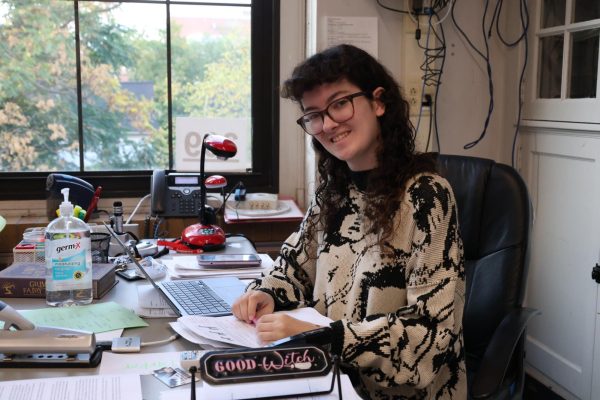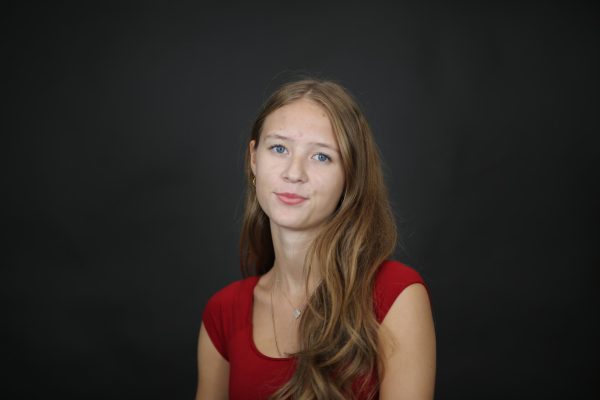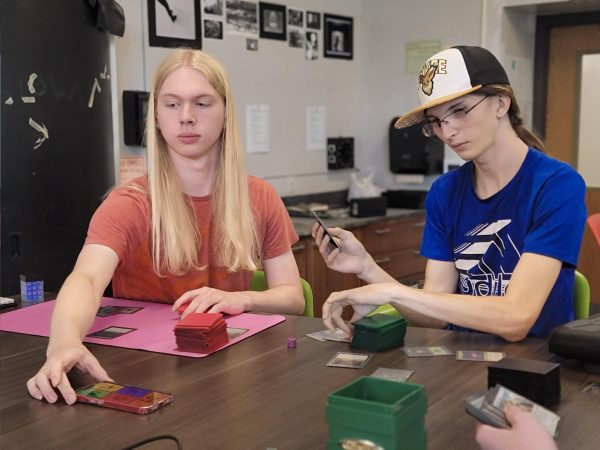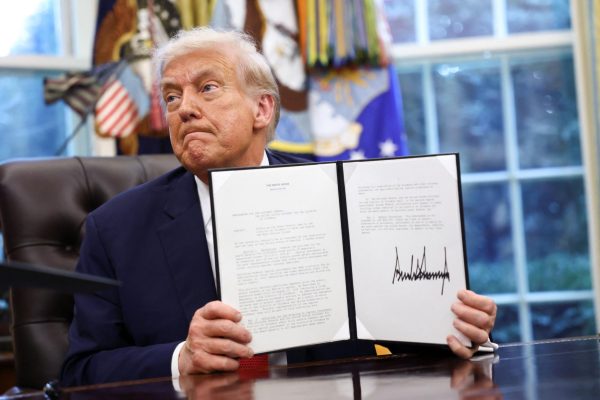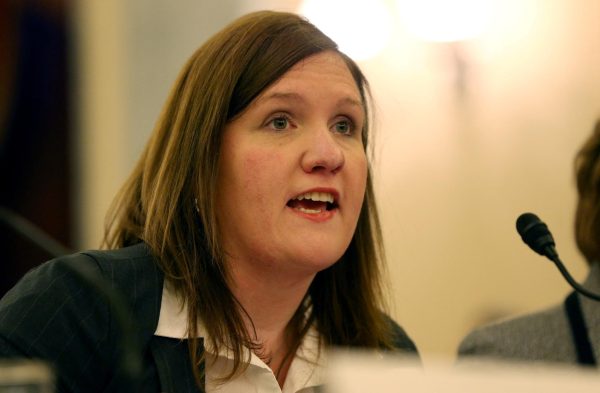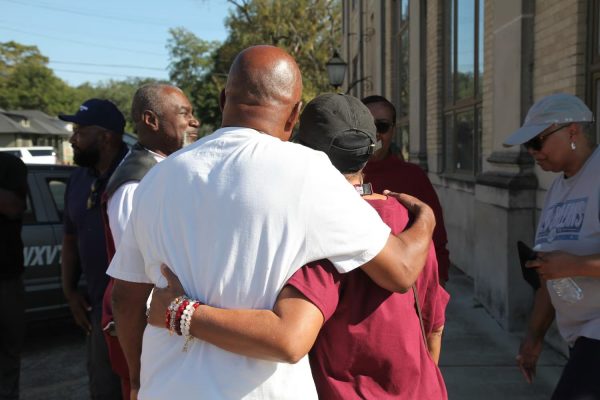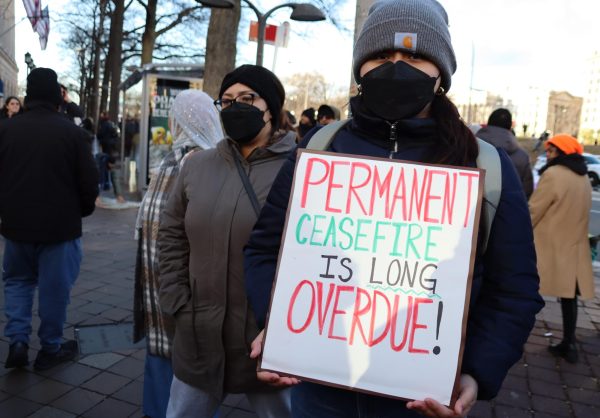The Racial Pandemic
Demetrious Castelow
Demetrious Castelow felt like he had to do it.
A few days prior, in early summer of 2020, he was in Detroit with his cousin and some friends. They were
attending one of the city’s Black Lives Matter protests and were standing near the bridge leading to Canada, facing rows of police officers ahead of them. As Castelow’s cousin and an officer were starting to argue, the officer tackled his cousin. Castelow tried to help his cousin, but other officers were holding him back. His phone started to die, and Castelow couldn’t contact his cousin. And although he threw up from an overwhelming mix of emotions, Castelow didn’t know how to feel. Still, he stayed in Detroit.
“Even though I knew something bad could happen, I felt like I needed to be there,” Castelow said.
When the protest ended, Castelow returned to Detroit a few days later to attend another. But before he
returned, Castelow took a day off. He stayed off of social media and away from protests. His friends, however, reached out with encouraging texts and paragraphs, urging Castelow to get back out.
When he returned the second time, Castelow decided to start a live video on Instagram so his followers could see what was happening. He arrived with some friends a few minutes before the city’s implemented curfew and was met with a heavy police presence in riot gear. The police started marching towards them, shooting tear gas and rubber bullets. Castelow and his friends ran away, and a police car turned down the same street to follow them. They ended up hiding from the police when the officers got out of the car to look for them.
“I wasn’t afraid; things don’t really scare me,” Castelow said. “I just do it. And that’s just what I did. I felt like it had to be done, so I went and did it. I wasn’t afraid. I went in knowing what can happen.”
It wasn’t difficult for Castelow to muster up the bravery to return to Detroit, even after he had witnessed an incident of police brutality against his cousin and feared it could happen to himself. He knew he had to do it.
After witnessing the incident with his cousin in Detroit, he felt inspired to organize his own protest centered around teenagers. Although this was the first protest Castelow had ever spearheaded, he has dabbled in activism and had a prominent voice in the Black community. Before graduating from Skyline High School in 2020, he was the president of the Black Student Union during his senior year. As a club, they would host fundraisers, like selling popcorn after school to raise money for field trips. They would also provide their peers with a safe space to talk about the problems and struggles they faced in school.
“I felt like my age — our age, like high school and college people — our voices are the most important,” Castelow said. “And I feel like everything that’s going on affects us the most as well. So I wanted the protest to focus on younger people.”
On June 11, 2020, Castelow, along with his friend Maya Burch, held their protest in downtown Ann Arbor. The protest, Black Young Lives Matter, met outside of City Hall. Castelow determined the route he wanted to march along, brought a speaker to play music and provided demonstrators with masks. During the march, they stopped at the large rock on Washtenaw Avenue near the University of Michigan’s campus. Castelow welcomed demonstrators to speak on the issue.
“Whenever you see [police brutality], it angers you,” Castelow said. “And the anger is kind of like good anger. It makes you want to get up and go do something about it.”
Castelow describes his experiences in Detroit as traumatizing. But despite this, he was fueled to keep attending protests, never becoming exhausted and even taking time off of work to go to demonstrations. Castelow knew he had to do what he felt needed to be done.
Trische Duckworth
Trische Duckworth is able to feel the love around her.
When protesting, surrounded by people, the love she feels outweighs the rage and anger. Duckworth feels this love whether leading a protest of 10 that was able to shut down Washtenaw Avenue or speaking out to just one person.
“You can’t cancel hatred with hatred,” Duckworth said. “You have to cancel hatred with love. That’s why we lead with love, we talk about love. Love doesn’t mean you don’t say what’s true. Because when you love someone, you tell them the truth.”
As the executive director and founder of Survivors Speak — an organization in Washtenaw County that works to provide a creative platform of change and healing for survivors of traumatic events — Duckworth has shared this love through the Black Lives Matter protests she organized throughout the summer of 2020. As Duckworth sees it, these protests have been a way for community members to come together, establishing a sense of camaraderie.
The first protest Duckworth organized was around 2014 in support of two brothers who were wrongly incarcerated. But her activism began to intensify in 2018 when she was watching the news and survivors of Larry Nassar, the former Michigan State athletic doctor, came forward to report the abuse they endured from him. This event resonated with Duckworth. She, too, is a survivor of sexual assault. In February of 2018, she established Survivors Speak, providing survivors with forums in which they could express their experiences.
Once the Covid-19 pandemic started, Duckworth reformatted Survivors Speak to a virtual setting with socially distanced opportunities. She organized a Save our Seniors initiative, where, with the help of volunteers, Duckworth would buy groceries for senior citizens and drop them off at their houses. And while Survivors Speak focuses on a broad range of issues, Duckworth says the organization’s focus to rally around the Black Lives Matter movement in the summer was not a switch from one social issue to another. Survivors Speak has always focused on all survivors — it’s just a matter of prioritization.
“[Survivors Speak] believes that you have to sound the alarm,” Duckworth said. “You have to put a voice to what you are going through in order to be made whole — in order to find healing. That can be with the community, or it can be with any taboo topic or social injustice.”
At the end of May, Duckworth was outraged when she came across a video of police brutality against the Grady-Els, a couple in Washtenaw County. Although she didn’t know the Grady-Els personally, Duckworth was angered. She took to Facebook to spread the word and to encourage people to join her at the County Sheriff’s office to protest the injustice.
Throughout the summer, Survivors Speak continued to organize local protests — many of which centered around the Black Lives Matter movement. While organizing, Duckworth knew she had to focus on the intention of her protests in order to be effective. She never “marches without a mission.” She also makes sure to strategically choose the location and target audience, as well as identifying allies and stakeholders, such as those in legislative positions.
“Everybody’s role is important,” Duckworth said. “A lot of people try to discount the role of a protest, but that is a piece of the puzzle. We have to honor each piece. One isn’t greater than the other, but we can’t have one without the other. It takes all of these things to tear down this demon of white supremacy.”
Overall, Duckworth has had to do little to incentivize people to show their support, even in spite of the pandemic. People in the community, she feels, were compelled to fight against injustice. Still, as a precautionary measure at protests, Survivors Speak worked in conjunction with different medical affiliates, such as Southeastern Michigan Medics. Duckworth also made sure to provide protesters with hand sanitizer, gloves, water and snacks.
“We did what we could do, honoring that we were in a pandemic, but also honoring that we’re in a racial pandemic as well,” Duckworth said. “To us, one isn’t greater than the other. They’re both important.”
The Racial Pandemic
As cases of Covid-19 surged, causing a global pandemic, another pandemic was already in place: Duckworth’s racial pandemic. In her idea of a racial pandemic, Black Americans have never been made whole; the nuances of racism have worked to disadvantage the community at large.
“The things that we see — police brutality and all these things that are going on with the criminal justice system — that is another symptom of the racial pandemic,” Duckworth said. “It crosses many barriers.
Back in October, [Survivors Speak] did the Getting Real About Race forum, where we highlighted these disparities in education, employment, housing, the healthcare system and the criminal justice system — not just one thing. But we call it a racial pandemic because it affects every area of people’s lives as a whole within our community.”
The factors that cause the racial pandemic are systemic. On May 29, 2020, at a protest for the Grady-Els that Duckworth had co-organized with Ethan Ketner, another local activist, Duckworth alluded to a member of the National Association for the Advancement of Colored People’s (NAACP) analogy: “There’s no such thing as a bad apple. If the apple is bad, it’s because the tree is rotten to the core.” In Duckworth’s experience through harnessing the power in bringing people together, she worked to address the racial pandemic and the injustices at their core during the protests she organized over the summer. Her protests started with one family, but Duckworth’s cause eventually moved to a larger focus of racial equity.
And in the thick of the pandemic, both Castelow and Duckworth hosted well-attended protests. Castelow provided masks for those in attendance at his protest, but found the protesters to have masks and did not have to give any out. “I think, despite the pandemic, there was something greater that needed to be addressed,” Castelow said.
As Duckworth notes, many that are inspired to become involved in activism have the heart to demand and seek change — which is what she believes to be taking hold. The spirit of togetherness was prevalent at Duckworth’s protests: She witnessed many community members — allies from different racial and ethnic origins — coming together. And as her platform grew, Duckworth believes people’s hearts grew as well.
“[There are] bigger issues than getting sick,” said Ketner on May 29, 2020, at the protest he and Duckworth organized for the Grady-Els. “I understand over 100,000 people have died at this point, but people are getting shot, people are getting murdered in the streets. We have to do something about it. This shit cannot continue.”
Throughout Washtenaw County and Southeastern Michigan, some groups and communities decided to address the racial pandemic and prevalence of anti-Black racism. For instance, Detroit’s chapter of Black Lives Matter spelled out a list of eight demands in their “Detroit Bill of Rights,” addressing concerns such as water quality and healthcare. Even some local high school sports teams decided to take a stance on
the movement. In their mission statement, the Skyline High School crew team illustrated a commitment to antiracism through action items; these included partnerships with Peace Neighborhood Center, seeking out Black representation and initiating mentorship opportunities from Black alumni.
But despite the numerous protests throughout Washtenaw County and Southeastern Michigan over the summer of 2020, Duckworth believes that there are people trying to change the channel too quickly, jumping from issue to issue. To her, this is when people start to seek out some of the “low hanging fruit” when becoming politically mobilized. These may be issues that Duckworth feels are relatively attainable to
be solidified into law, like immigration. But at the top of the tree sits racial equity and Black liberation — the end goals that are the most difficult to reach for.
“We don’t care,” Duckworth said. “We’re reaching for that fruit. And we’re bringing it down, and we’re understanding that we’re not going to allow the channel to be changed. We are going to stay focused on building racial equity here in America.”
Castelow and Duckworth are among many community members that have rallied in support of the Black Lives Matter movement. Castelow, a young organizer that worked to incorporate the voices of his peers, and Duckworth, a seasoned activist accustomed to supporting all survivors, have taken part in working towards upending the racial pandemic. And, as Castelow said, because he felt like he needed to do it.
